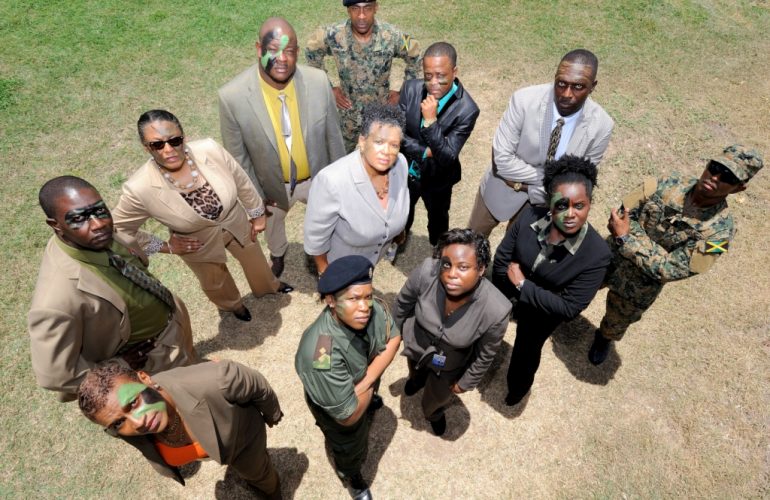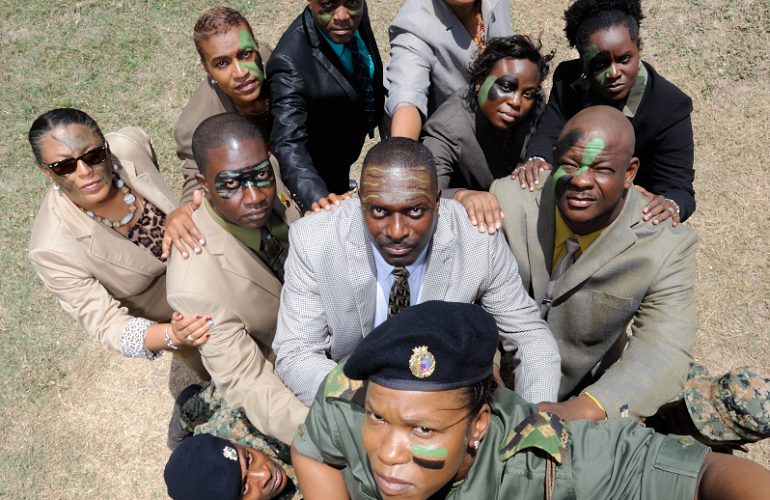Dr Renee Rattray – Helping people to be better
DR Renee Rattray is a forthright, confident educator and nurturer who believes that everyone deserves an opportunity to fulfil their purpose and greatness within.
Born and raised in Red Hills, St Andrew, where she was known as ‘Mr Miller’s granddaughter’, Dr Rattray told
All Woman that her early life was filled with fun from attending church at Red Hills Baptist to school at Immaculate Conception High, where she was deeply involved in community service and leadership initiatives.
“Everything I have done has been about helping people to be better. From very young I have had great examples in my family and parents who have been helping people in the community or in their work. I’m driven by people and making their lives better.”
Dr Rattray shared that she would go on excursions with her parents every summer to learn about Jamaica, and also watch her mother care for people and help change their lives in her role as a probation officer, motivational speaker and social worker.
And so, with positive examples around, her course in life was charted, but it took one family member’s reality for her to truly realise her purpose.
“I had a cousin who lived with us and we had to go to Mico Care Centre to help to give him support. I saw how people helped him to improve, so I became interested in special education and decided to teach. I’ve always had some kind of inclination to lead and guide people. I’ve always known I could influence people, and that’s what teaching is,” she said.
After leaving sixth form, Dr Rattray told her father she would not pursue a career in law — much to his disapproval — and became a trained special education teacher at The Mico University College. She then did a degree in psychology at the University of the West Indies and went on to Columbia University to do a master’s in educational psychology, then pursued a doctorate in education from Nova Southeastern University.
Currently the head of learning and development with responsibility for education programmes at the Jamaica National Group, Dr Rattray has also served as one of the first inspectors with the National Education Inspectorate, project manager for PALS (Peace and Love in Schools), and principal of St Andrew Preparatory School — an experience she cherishes.
“At St Andrew Prep I was able to touch the lives of so many amazing little people with so much light and potential. I had fun and enjoyed everything about being there. I was mentored by the late Madge Broderick and she was an excellent administrator — very traditional in some ways, and a renaissance woman. She was a great person to introduce me to school leadership,” she said.
Having also been involved with the University Singers and Cathy Levy and Friends — experiences which taught her discipline, teamwork and the value of dreaming big — Dr Rattray exposed the children to similar pursuits.
“Even though we did stuff in the performing arts, she (Levy) taught us more than anything that it was really about discipline, teamwork, confidence, valuing yourself and dreaming,” she recalled.
“So I did a lot of work in the performing arts and the students got involved in everything possible, and I ensured it was a rounded place and a family environment.”
Since 2010, in her tenure at Jamaica National, Dr Rattray has managed to lead the Centres of Excellence programme — a school improvement initiative — and the iLead project which supports 10 schools in Region Two (St Thomas, St Mary and Portland) with technical capacity building and financial support to help them improve.
Also on the board of the Maxfield Park Children’s Home, Edufocal and the National College for Educational Leadership, Dr Rattray is passionate about fighting injustice and the lack of opportunity that some children have.
I get very angry when I hear that people have low expectations of our children and limit them or put them in a box and say that they’re not able to do what they can do. I’m intolerant of the system that doesn’t set our children up for success. I’m wanting to do everything in my power to make sure every child in Jamaica benefits from the best, because our potential is limitless and that’s a major passion of mine,” she said.
She’s also intolerant of belittlement and is big on empowering women.
“I remember Maya Angelou saying that she doesn’t allow people to be disrespectful of other people in her space. I’m learning and practising to do it to make sure that if it doesn’t come from a place of love, I don’t entertain it in my space,” she said.
Dr Rattray added: “I don’t have experiences with women where there is catfighting. We keep saying women don’t get along, but we need to stop saying that and fulfilling the prophecy. It’s something I don’t invite into my space and I believe there is power in that connection, and there is so much more we can do together than apart.”
A mother to a pair of twins, Dr Rattray loves London, Treasure Beach, Negril, Portland, and is inspired by her mother and Nelson Mandela because of his will to forgive. Her daily mantra is ‘I am enough’.







